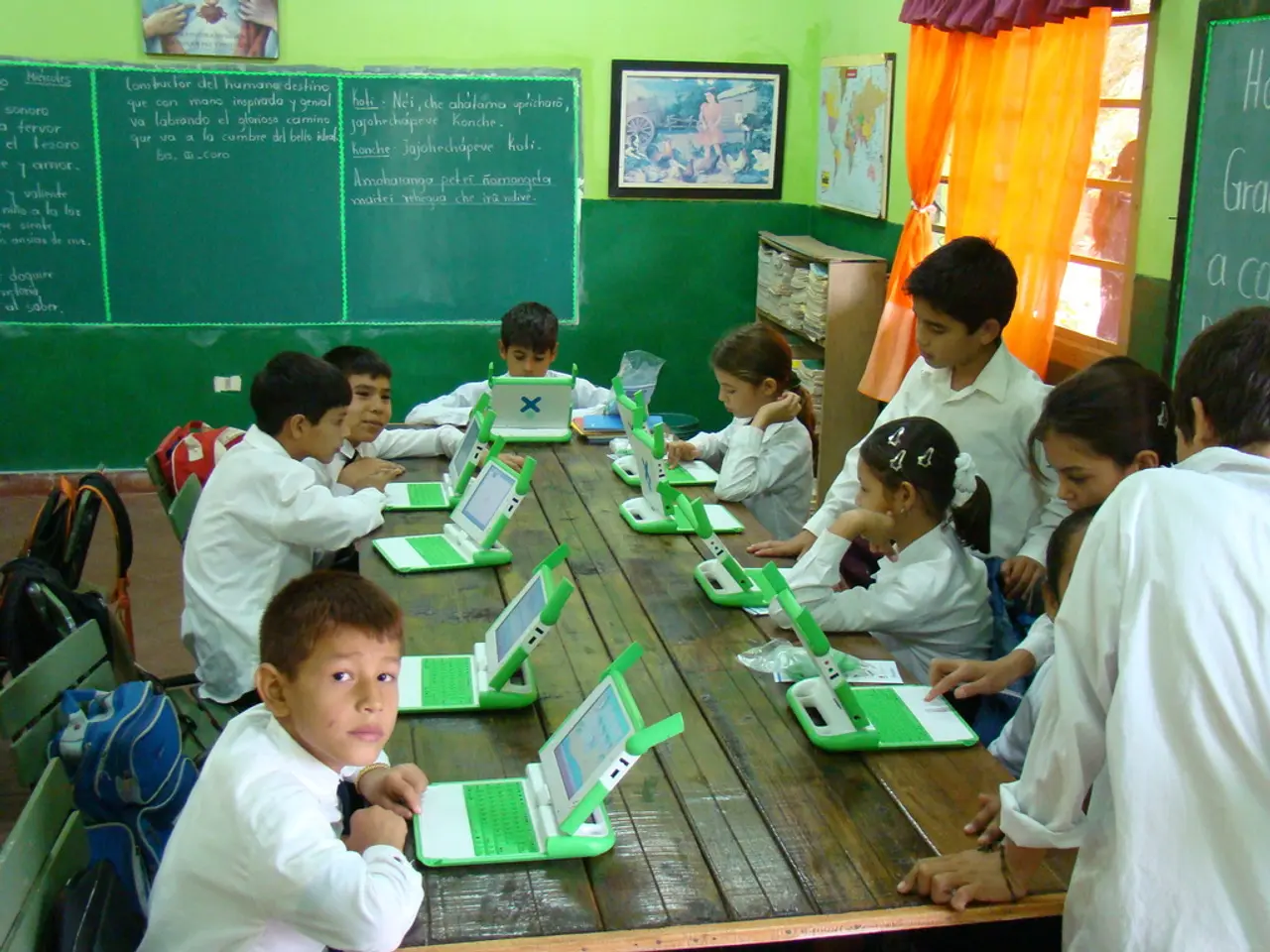International students face potential threat as a new US bill stirs worry, with tech giants like Amazon and Tesla relying heavily on their presence
The Optional Practical Training (OPT) program, a vital pathway for international graduates, particularly those in STEM fields, to gain practical work experience in the U.S., is under scrutiny. The Fairness for High-Skilled Americans Act of 2023, currently under review in the U.S. Congress, aims to end this program.
In 2024, the SEVIS report highlighted the critical role of the OPT program in providing a practical entry into the U.S. workforce for international graduates in STEM fields. The report demonstrated an increase in reliance on the OPT program by these graduates, with notable participation from 2023 to 2024.
Leading tech companies, such as Amazon, Tesla, Goldman Sachs, Apple, Google, Meta, and Microsoft, have been significant employers of OPT students. In 2024, Amazon led the way with 5,379 jobs for OPT participants, followed by Tesla with 1,170 jobs.
The OPT program plays a significant role in early-career positions that support future growth and innovation within the U.S. tech and finance industries. Many international students view the OPT period as a stepping stone towards full-time employment, a chance to gain experience, and in some cases, a lead-up to an H-1B visa.
However, the proposed bill, if passed, could shut down this key pathway for Indian students to apply their skills in the American workforce after graduation. This could result in thousands of highly trained graduates leaving the U.S. just when they are ready to contribute to the workforce.
Critics argue that ending the OPT program would directly harm the competitiveness of the U.S. tech industry and innovation ecosystem. The hiring of international graduates through OPT by leading tech companies in the U.S. increased in 2024, underlining the critical importance of this talent pool for the U.S. tech and finance industries.
The OPT program's potential elimination could leave a gap in the U.S. workforce, particularly in early-career positions. The 2024 SEVIS report shows that 194,554 international students were actively working in the U.S. under the OPT program in 2024, a 21% increase from the previous year.
The OPT program is currently a point of contention among tech leaders, international students, and certain figures in the U.S. government. While figures like Jessica Vaughan of the Center for Immigration Studies describe the OPT program as a "shadow guestworker program," others argue that it contributes to U.S. innovation, university funding, and maintaining a globally competitive labor force.
As the bill moves forward, it remains to be seen how the future of the OPT program will unfold. The potential impact on the U.S. tech industry, international students, and the country's innovation leadership and economic competitiveness hangs in the balance.
The proposed Fairness for High-Skilled Americans Act of 2023, if passed, could impact the U.S. education-and-self-development sector, specifically the technical field, by ending the Optional Practical Training (OPT) program, a crucial avenue for international graduates in gaining practical work experience. The elimination of the OPT program could lead to a political debate on the competitiveness of the U.S. tech industry and innovation ecosystem, as a notable number of international students rely on this program for early-career positions.
The OPT program, which saw a 21% increase in participation in 2024, according to the SEVIS report, plays a significant role in supporting the hiring of international graduates by leading tech companies like Amazon, Tesla, and Google. The growing reliance on the OPT program by international students in the U.S. workforce, especially in the tech and finance industries, highlights the impact of the program on general-news topics such as the U.S. economy, university funding, and innovation leadership.




